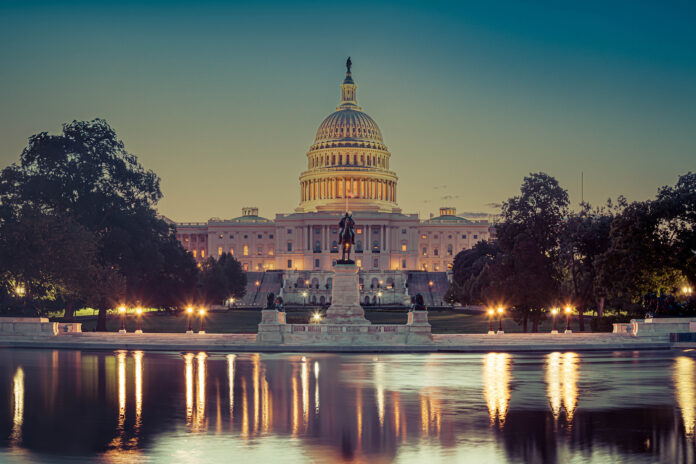WASHINGTON D.C. – The Republican-controlled U.S. House of Representatives approved an amendment to military spending legislation that would allow Veterans Administration (VA) doctors to recommend medical cannabis to patients.
Following the same outline as the Rohrabacher-Blumenauer amendment that since 2014 has prohibited the Justice Department from spending federal funds to interfere with state-legal cannabis programs, the medical cannabis measure prohibits the VA from using its funding to bar doctors from recommending cannabis to patients.
Specifically, the bill “prevents the VA from interfering with a veteran’s ability to participate in a legal state medical cannabis program, deny service to such a veteran, or limit health care providers’ ability to make appropriate recommendations of this treatment option for veterans.”
The amendment is one of 41 currently attached to the 2024 Military Construction, Veterans Affairs, and Related Agencies appropriations bill.
“This bill fully funds veterans’ programs at the level requested by the President. It keeps our promise to veterans, and we do more to help veterans in the Pacific,” said Rep. John Carter (R-TX), the bill’s lead sponsor. “But we also ensure taxpayer funds are used appropriately and effectively by increasing oversight of several programs.”
According to Appropriations Committee Chairwoman Kay Granger (R-TX), “The bill before us demonstrates our commitment to reduce overall spending and still honor our commitment to our veterans. This bill makes good on that promise by fully funding veterans’ health care. It will ensure our veterans get the medical treatment and benefits they deserve.”
The bipartisan amendment, introduced by Reps. Brian Mast (R-FL), Earl Blumenauer (D-OR), Barbara Lee (D-CA), and Dave Joyce (R-OH), and later cosponsored by Reps. Matt Gaetz (R-FL) and Jim McGovern (D-MA), mirrors the efforts by Sen. Jeff Merkley (D-OR), who introduced a similar amendment that was approved by the Senate Appropriations Committee in June.
House Democrats and Republicans attempted to adopt similar language in the defense bill earlier this month, but all cannabis-related amendments were stripped by the Republican-led House Rules Committee before the bill that eventually passed could reach the floor for a vote. Standalone bills with bipartisan support like the Veterans Equal Access Act have been introduced with the same goals only to be referred to committees where they stall.
“I rise in support of a bipartisan amendment, and it’s to do something simple: give veterans access to every possible tool when it comes to the wounds of war, of which I am innately familiar,” said Mast. “The amendment is quite simple. It allows VA doctors in states with legal medical cannabis programs to discuss cannabis as a treatment option with their patients.”
Because cannabis is federally illegal, the VA currently prohibits its primary care physicians, physician assistants, nurse practitioners, nurses, and other medical personnel from discussing the medical-cannabis treatment options available in their states.
Carter was vocal in opposition to the amendment, saying during the hearing that VA doctors are required to comply with federal law, which this amendment “does not address.” He believes this type of policy shift should be handled by the authorizing committees.
Opposition also came from Rep. Debbie Wasserman Schultz (D-FL), who sounded alarms about potential Drug Enforcement Agency intervention actions against VA employees. According to Schultz, “In the absence of systemic changes to federal drug policy outside the VA, providers could be at risk of penalties or other legal actions.” She added, “This debate is happening in the wrong bill, on the wrong topic.”
Despite limited opposition, the amendment moved forward without any official pushback, approved by a voice vote and not a counted ballot (which could have been requested by any representative).
The must-pass bill still has a long way to go as it’s negotiated between the two chambers.
H.R.4366 – Military Construction, Veterans Affairs, and Related Agencies Appropriations Act, 2024 has been placed on the Union Calendar, Calendar No. 94.








